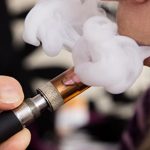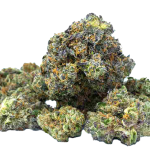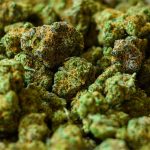From CBD bath bombs to CBD lattes to CBD-infused workout gear, questionable wellness trends are everywhere. Unlike THC, the molecule that causes cannabis’ “high”, CBD edibles is being studied for its effects on sleep, anxiety and inflammation without the psychoactive effects of THC.
CBD is marketed as a panacea because of the attention it has on its potency to be determined. Consumer products such as CBD injections added to beverages claim to ensure relaxation, improve mood, and relieve pain. CBD, in very high doses, is clinically proven to treat anxiety, reduce inflammation (Opens in a new tab), and treat epilepsy (Opens in a new tab), but it’s not a miracle supplement for sale.
The first of a three-part series on CBD introduces you to what you need to know about CBD edibles.
Here it is: Orally administered CBD has so far been clinically proven effective at very high doses. The university concluded that CBD could be used to treat patients with anxiety disorders, but doses ranged from 300 to 600 mg. In another study (Opens in a new tab) conducted by a university, subjects were less anxious about public speaking after an oral dose of 300 mg of CBD, but not after a dose of 100 mg.
Whereas, consumer products typically range from 5mg to 25mg.
Basically, you may need to swallow a handful of CBD capsules to feel less anxious than the placebo effect. A study on insomnia and anxiety published in The Permanente Journal (Opens in a new tab) noted that “CBD’s current retail cost would make 600mg/dose cost prohibitive.”
Why do dosages have to be so high, while THC edibles can be couch-locked at just 10mg? It comes down to bioavailability, which is the amount of a drug that has an active effect when absorbed by the body. Like any drug, CBD must travel through the bloodstream to reach the rest of the body in order to be effective. When you pop a CBD capsule, it gets absorbed into your digestive system and then travels into your bloodstream where it later affects your brain. Orally ingested CBD is very less bioavailable than inhaled, so you would need to take many capsules to get the same effect as vaping.
There is no consensus on the exact oral bioavailability of CBD. A study published in Chemistry & Biodiversity (Opens in a new tab) concluded that between 4 and 20%. This means that if you consume 100 mg of CBD, you will get less than 20 mg in your bloodstream. Most consumer products contain less than 25 mg of CBD, so much less CBD enters the bloodstream.

Known as the “first pass effect,” the liver may break down certain compounds so much that they no longer have a noticeable effect on the body. As THC passes through the liver, it is metabolized into other more powerful (Opens in a new tab) psychoactive molecule. CBD, on the other hand, is sensitive to first passage in the liver (Opens in a new tab), but does not break down into something stronger like THC. 10 mg of THC can get you into a binge-eating nature documentary, but CBD taken orally tends to be less effective.








